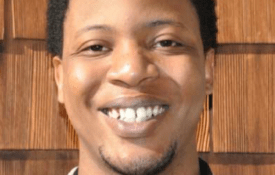-

2022 Spence Award Mini Episode: Jason Okonofua and the Power of Empathy
Under the Cortex talks with 2022 Spence Award winner Jason Okonofua.
-
Take a Career Break, but Stay In the Game
You got burned out. Your kids needed you. You became a crypto millionaire overnight. Whatever the reason—congrats. Welcome to your career break, length TBD. Time off by choice can be wonderful if you can swing it, a chance to recalibrate your priorities and detox from the stress of the working world. It can also be a kind of limbo. How to keep your edge without getting sucked back into corporate overwhelm? How do you know when it’s the right moment to job hunt again? And what comes next, anyway?
-

New Research From Clinical Psychological Science
A sample of research on COVID-19, stress, maternal health, anxiety, PTSD, psychopathology and diagnosis, alcohol’s effects, and verbal hallucinations.
-
The Questionable Compatibility of Introverts and Extroverts
Swiss psychiatrist Carl Jung popularized the terms introvert and extrovert in the 1900s; but a century later, his postulations about personality types have become so warped by popular culture that the reputations of introverts everywhere are at stake. Jung originally sought to understand how people derive and orient their energies. That is to say, according to Jung, extroverts draw their energy from those around them while introverts pull it from within themselves. He suggested that these personality traits are different — but equally healthy. One isn’t better than the other.
-

New Research in Psychological Science
A sample of research on language and counting, pain as social glue, perinatal conditions and gender nonconformity, constellations across cultures, generations and personality, attachment and hearing, app usage and identity, and sexism identification.
-
‘Turning Red’ Is a Good Conversation Starter — and Not Just for Girls
Disney’s newest animated film, “Turning Red,” in which an adolescent girl contends with puberty, cultural expectations and her newfound tendency to turn into a giant red panda when overtaken by emotion, has viewers buzzing. Although critical reviews of the film have been largely positive, some viewers — especially parents — have had a rather different take. Some have been aghast that the movie discusses menstruation; others dislike its exploration of romantic crushes and sexuality; and still others are upset that the main character, 13-year-old Mei Lee, rebels against her parents by repeatedly lying and sneaking out.

